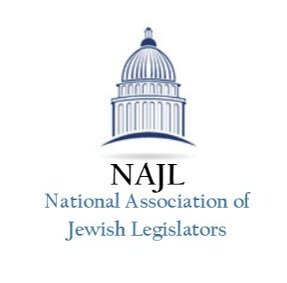On this page, you will find sample policies and links to state’s legislation on a variety of topics. Scroll through to see more.
Respecting Religious Observance Days
On behalf of the National Association of Jewish Legislators (NAJL), we ask that state legislative sessions, work meetings and votes not take place during major religious observance days during the year. Holidays observed by Christians, Jews, Muslims and Hindus, representing the world’s major religions, should be honored by our state legislatures.
For the Jewish community, these dates include the two days of Rosh Hashanah (the new year), Yom Kippur (day of atonement ) and the first two days of Passover (celebration of freedom from slavery).
While Roman calendar days go from midnight to midnight, Jewish calendar days go from sunset to sunset. To meet Jewish law requirements, holy day evening meals are eaten prior to attendance at evening synagogue services, which begin before sunset. Accordingly, we request that legislative activity not take place beginning mid-afternoon the day a holy day starts. This will give Jewish legislators, staff and the public the ability to begin their observances in accordance with Jewish law.
NAJL, your local Jewish Federation or the community relations council can provide the legislature with the Jewish holidays and calendar for each year or they can be found here.
Thank you very much for your attention to this concern. We want to ensure that everyone can practice their religious beliefs without having to be in conflict with legislative service.
Suggested Legislative Prayer Guidelines
The U.S. Supreme Court held in Greece v. Galloway 572 U.S. __(2014) that government should “maintain… a policy of non-discrimination” and “represent… that it would welcome a prayer by any minister or layman who wished to give one. The Court also said that “ prayer is delivered during the ceremonial portion of the town's meeting. Board members are not engaged in policymaking at this time…. It is a moment for town leaders to recognize the achievements of their constituents and the aspects of the community life that are worth celebrating.”
Legislative Invocations or Prayers Should Conform to the Following Guidelines:
1. Extend invitations to clergy of all faiths on a rotating basis, including religions not within Judeo-Christian traditions Prayers
2. Be nonsectarian and make no reference to any particular religion, deity, sect or denomination or to any recognized religious leaders associated with any religious belief
3. Appeal to a general audience, seeking the highest common denominator, where no single faith is mentioned and an appeal to broad-based divine guidance is sought
4. Use language with universal, inclusive terms including “Mighty God,” “Our Maker,” “Source of all being,” “Creator and Sustainer,” etc.
5. Avoid mention of specific legislation, personalities or politics
6. Be short and follow any other applicable chamber rules
7. Conclude with an embrace of all religions and beliefs, representing the collective thought of all present using terms such as “Hear Our Prayer,” “In Thy Name,” or “Amen.”
Legislative Seder & Passover Resources
Numerous legislatures host Legislative Seders, a great way to share the messages of freedom, compassion and Tikkun Olam with a broader, diverse audience. This year of 2023, Passover starts the evening of April 5.
Here are some examples of materials from across the country:
